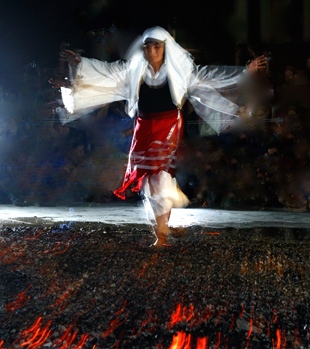“An old man’s mind is a mountain, each memory a milk-washed bell. It’s true, God holds the future, which is uncertain and unknown, so let him hold it. But the old man holds the past…No god can summon it before him and rearrange it at his will…[To] an old man, a day from fifty years back [is] as loud as another not even a fortnight old. And so the gods grow jealous of the old man. They hold the Cup of Lethe to his lips. His feet grow weak…and gone is the old man’s strength to ring the bells.”—Grandfather to the youth.
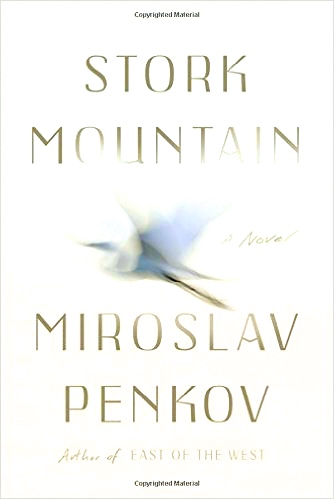 In the Strandja Mountains, where Bulgaria, Turkey, and Greece come together, a young graduate student who left Bulgaria for the United States as a boy, reconnects with his grandfather, from whom the family has heard nothing for the past three years. Unsuccessful in his college studies and desperately in need of funds to pay off some loans, the youth has come to Klisura in southeast Bulgaria hoping to sell some family land but also to spend time with the grandfather he has not seen in fifteen years. The narrative which follows, written by debut novelist Miroslav Penkov, who lived in Bulgaria until he was nineteen, breathes with the kind of exuberant realism which distinguishes the writing of someone who has actually lived through certain events, as opposed to the writing of someone who is “writing about” events which he may have observed but not fully lived. The “milk-washed” bell, a unique image for the grandfather’s memory, quoted in the introductory passage to this review, refers to a traditional practice in Klisura of washing sheep’s bells in milk “so the bells might sing more sweetly.”
In the Strandja Mountains, where Bulgaria, Turkey, and Greece come together, a young graduate student who left Bulgaria for the United States as a boy, reconnects with his grandfather, from whom the family has heard nothing for the past three years. Unsuccessful in his college studies and desperately in need of funds to pay off some loans, the youth has come to Klisura in southeast Bulgaria hoping to sell some family land but also to spend time with the grandfather he has not seen in fifteen years. The narrative which follows, written by debut novelist Miroslav Penkov, who lived in Bulgaria until he was nineteen, breathes with the kind of exuberant realism which distinguishes the writing of someone who has actually lived through certain events, as opposed to the writing of someone who is “writing about” events which he may have observed but not fully lived. The “milk-washed” bell, a unique image for the grandfather’s memory, quoted in the introductory passage to this review, refers to a traditional practice in Klisura of washing sheep’s bells in milk “so the bells might sing more sweetly.”
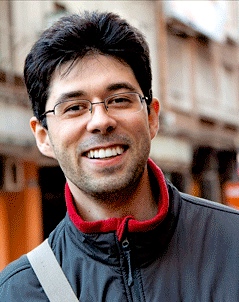 Specific, often charming, detail like this accompanies the descriptions of many events and cultural traditions unknown to most of us in the West, giving a new kind of liveliness to the story of the youth’s return to his homeland and to his meetings with the people who live there. These include the nestinari, men and women, often quite young, of priestly importance, who walk on red-hot coals without being burned during the once-a year religious celebration which has been held continuously for thirteen hundred years. The grandfather’s special connection to the nestinari adds additional drama to the action throughout. The overwhelming presence of storks in the spring and summer also adds to the magical, even spiritual, tone of everyday life in Klisura.
Specific, often charming, detail like this accompanies the descriptions of many events and cultural traditions unknown to most of us in the West, giving a new kind of liveliness to the story of the youth’s return to his homeland and to his meetings with the people who live there. These include the nestinari, men and women, often quite young, of priestly importance, who walk on red-hot coals without being burned during the once-a year religious celebration which has been held continuously for thirteen hundred years. The grandfather’s special connection to the nestinari adds additional drama to the action throughout. The overwhelming presence of storks in the spring and summer also adds to the magical, even spiritual, tone of everyday life in Klisura.
An unusual – possibly unique – combination of coming-of-age novel and epic of Bulgarian history and culture, the narrative has the small focus of a young man with limited goals and the grand scope of a culture which has incorporated elements from its Christian, Muslim, and even pagan past over many centuries. Wars and conquests by all these religious groups now living in Bulgaria, Greece, and Turkey and speaking different languages have led to ancient traditions or painful scars in their wake. Stories ranging from the life and times of Attila in the fifth century to Murad, “the godlike one,” who founded the Ottoman Empire six centuries ago, combine here with pagan elements of hysteria related to the ongoing nestinari celebrations, to keep the reader occupied on a level beyond that of mere plot as the youth learns about Bulgaria, his grandfather, and the people he meets, including Elif, the daughter of an imam, with whom he falls in love.
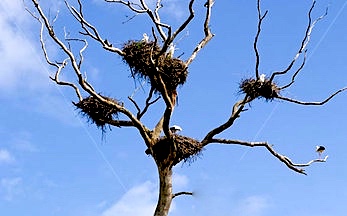
Stork nests are about five feet in diameter and six feet deep. The seemingly tiny stork at the end of the bottom branch (rt) is actually 45 inches long from beak to tail and has a wing span of over seven feet. “The tree was dead. But all the same, it bloomed in massive charcoal blossoms that weighed its branches down.”
Swirling around in time, the novel opens with a wild sandstorm, a simoom, which has come up from the Sahara and delays the passengers waiting for the bus to Klisura. The youth’s grandfather, a former teacher, has built and rebuilt the school for the town of Klisura five times, after succeeding raids by competing Balkan religious and political groups have destroyed it, and he is committed to education, including the education of women. The women here, often forced to be servants to their husbands, have little choice in their personal lives from the time they reach marriageable age. Elif, the older daughter of the local imam, will never forgive her father for virtually imprisoning her younger sister Aysha, who is one of seven girls from the village “chosen” by St. Constantine to walk across the coals at the next nestinari festival. Elif, very independent, wants only to escape her life in Klisura, and her favorite place to go (and the place where she keeps her marijuana stash) is up into one of the huge, empty stork nests where she can smoke, sometimes with a friend. She plans to vanish as soon as she gets her diploma.
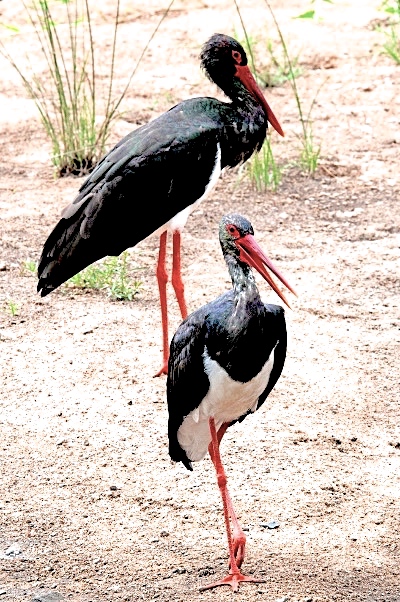
Two black storks, a little smaller than white storks. Their beaks and legs turn red when they reach maturity.
The youth, in the meantime, has discovered that his former land will now be developed into a wind farm with the aid of the imam. What will happen to the storks becomes a major issue, since storks do not migrate across the Mediterranean when they arrive from Africa in the spring, but travel along the east coast of Africa and across on land through the Strandja Mountains, aided by thermals which save them energy. Approximately seventy-five percent of all storks in Europe and the Balkans migrate through the Strandja Mountains, with up to 250,000 storks in residence in Bulgaria during the high points of migrations. Exposing them to wind farms would kill many of them, and they are regarded as almost sacred by the population. The youth, his grandfather, and St. Kosta, the name of their pet stork with a broken wing, are a family during the course of the novel, until, in the conclusion, the novel comes full circle complete with new, previously secret, information and past history.

Double click to enlarge. Klisura is located in Bulgaria above the middle of the Turkish border shown here, almost on the border itself. Click to enlarge.
Although I thoroughly enjoyed this novel, I can hardly wait for Penkov’s next one. With what seems to be limitless imagination and the ability to use realistic description to create events of almost mystical import, he is able to avoid the romanticism which so often overpowers novels which touch on pagan influences. With themes related to memory, aging, the past, history, identity, and spirituality, Penkov keeps the reader engaged with big topics, while his experience as a short story writer provides numerous self-contained episodes which allow the reader to move around with the changes of subject. I did wish, however, that the author had condensed his material and edited it significantly to make it a more tightly wrought novel, instead of a collage of time periods and different kinds of action. There seems to be nothing that Penkov cannot do – and do well. I just wish he had not tried to do it all in this first novel.
Photos, in order: The author’s photo appears on https://www.untsystem.edu/
The young nestinari’s walk is found on http://bnr.bg/
The stork nests are a portion of a photo from http://www.alamy.com
The two black storks, smaller than white ones, appear on https://kth.kattis.com/
Klisura, an imagined town in Bulgaria, is located where Bulgaria, Turkey, and Greece come together: http://www.nanohardbg.eu/
